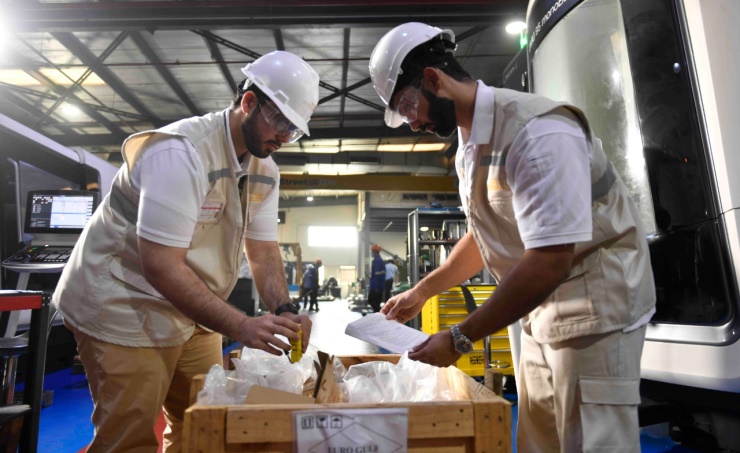
The UAE’s Federal Authority for Nuclear Regulation (FANR) has published its 2021 Annual Report, detailing its nuclear regulatory activities and milestones during 2021.
Throughout the year, FANR conducted its oversight activities at the Barakah Nuclear Power Plant through its resident inspectors and other deployed inspectors from its headquarters.
These activities included 33 nuclear safety inspections of the Barakah Nuclear Power Plant, which covered site construction, commissioning, operational readiness, power ascension testing, vendor inspection activities, and operational activities.
As part of its responsibility in ensuring the security of the Barakah Nuclear Power Plant, FANR reviewed and approved the Physical Protection Plan for Operation of Unit 2, while beginning assessment of the Physical Protection Plan for Operation of Unit 3.
FANR also reviewed the Transport Safety Plans for unirradiated nuclear fuel of Unit 3 and for refueling Unit 1. FANR inspectors also conducted three security inspections of Units 1 and 2, covering the intrusion detection system, management of nuclear security events, and security organization.
During 2021, FANR continued its commitment towards nuclear non-proliferation. It conducted 10 safeguards inspections at the Barakah Nuclear Power Plant, in addition to 39 safeguards-related inspections at locations outside facilities and a further 85 inspections at premises of licenses and parties involved in transporting regulated material. FANR also operates the Nuclear Technology Portal, the first automated nuclear import and export control system in the region, which processed more than 15,000 requests over the course of 2021.
In line with its goal of protecting the public and environment from radiological hazards, FANR prepared the fourth National Report of the UAE on the Joint Convention on the Safety of Spent Fuel Management and on the Safety of Radioactive Waste Management, which was submitted to the IAEA for review.
The report outlines measures implemented by the UAE to ensure the management of nuclear and radiological waste to protect the public and environment from radiation hazards.
By the end of 2021, FANR radiation safety inspectors had carried out 301 inspections across the UAE targeting high and medium risk facilities and activities. In addition, 12 FANR inspectors evaluated Nawah’s arrangements to respond to a hypothetical emergency affecting two Units of the Barakah Nuclear Power Plant.
FANR’s Second Standards Dosimetry Lab (SSDL), inaugurated in 2018 and situated at Khalifa University’s campus in Abu Dhabi, is responsible for calibrating radiation-emitting devices used in civil industries, such as the medical sector.
Throughout 2021 the lab conducted 819 calibrations, a 30% increase over the previous year and with a 99% customer satisfaction rate. Such services are aimed at ensuring that radiological devices are emitting safe, accurate doses of radiation so as to ensure the safety of users.
The Emergency Operations Center, launched and operated by FANR and located at the regulator’s headquarters in Abu Dhabi, was fully operational throughout 2021. To further demonstrate its arrangements for emergency preparedness, FANR led and participated at the International Atomic Energy Agency’s (IAEA) ConvEx-3 ‘Barakah UAE’, which ran for two days under the supervision of the IAEA, featuring the participation of more than 75 countries and 12 international organisations.
This exercise is one of the world’s most complex exercises and takes place every three to five years to test the response capabilities and early notification to the international emergencies in cases of nuclear or radiological emergencies, according to the international emergency conventions.
It is also an opportunity to evaluate the adequacy of current communication and cooperation protocols, as well as identify areas of improvement in the national and international response systems.
FANR has continued to invest in the building of Emirati capacity in the nuclear field. In 2021, FANR placed six people on a development programme in Radiation Safety, two of whom graduated the same year.
FANR has also maintained its efforts to empower women in the sector, with women representing 43% of the regulator’s workforce and holding 50% of leadership positions.












